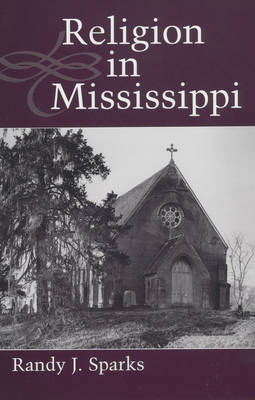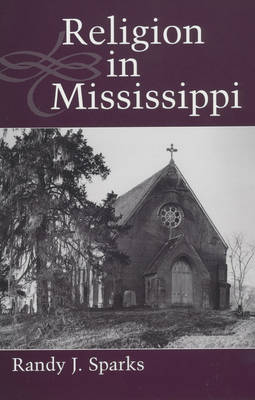
- Retrait gratuit dans votre magasin Club
- 7.000.000 titres dans notre catalogue
- Payer en toute sécurité
- Toujours un magasin près de chez vous
- Retrait gratuit dans votre magasin Club
- 7.000.0000 titres dans notre catalogue
- Payer en toute sécurité
- Toujours un magasin près de chez vous
59,45 €
+ 118 points
Format
Description
In the 1600s Colonial French settlers brought Christianity into the lands that are now the state of Mississippi. Throughout the period of French rule and the period of Spanish dominion that followed, Roman Catholicism remained the principal religion. By the time that statehood was achieved in 1817, Mississippi was attracting Methodists, Baptists, Presbyterians, and other Protestant evangelical faiths at a remarkable pace, and by the twentieth century, religion in Mississippi was dominantly Protestant and evangelical. In this book Randy J. Sparks traces the roots of evangelical Christianity in the state and shows how the evangelicals became a force of cultural revolution. They embraced the poorer segments of society, welcomed high populations of both women and African Americans, and deeply influenced ritual and belief in the state's vision of Christianity. In the 1830s as the Mississippi economy boomed, so did evangelicalism. As Protestant faiths became wedded to patriarchal standards, slaveholding, and southern political tradition, seeds were sown for the war that would erupt three decades later. Until Reconstruction many Mississippi churches comprised biracial congregations and featured women in prominent roles, but as the Civil War and the racial split cooled the evangelicals' liberal fervor and drastically changed the democratic character of their religion into archconservatism, a strong but separate black church emerged. As dominance by Protestant conservatives solidified, Jews, Catholics, and Mormons struggled to retain their religious identities while conforming to standards set by white Protestant society. As Sparks explores the dissonance between the state's powerful evangelical voice and Mississippi's social and cultural mores, he reveals the striking irony of faith and society in conflict. By the time of the Civil Rights movement of the 1960s, religion, formerly a liberal force, had become one of the leading proponents of segregation, gender inequality, and ethnic animosity among whites in the Magnolia State. Among blacks, however, the churches were bastions of racial pride and resistance to the forces of oppression. Randy J. Sparks, an associate professor of history at Tulane University, is the author of On Jordan's Stormy Banks: Evangelical Religion in Mississippi, 1773-1876.
Spécifications
Parties prenantes
- Auteur(s) :
- Editeur:
Contenu
- Nombre de pages :
- 288
- Langue:
- Anglais
- Collection :
Caractéristiques
- EAN:
- 9781617033162
- Date de parution :
- 09-04-12
- Format:
- Livre broché
- Format numérique:
- Trade paperback (VS)
- Dimensions :
- 152 mm x 229 mm
- Poids :
- 594 g

Les avis
Nous publions uniquement les avis qui respectent les conditions requises. Consultez nos conditions pour les avis.






